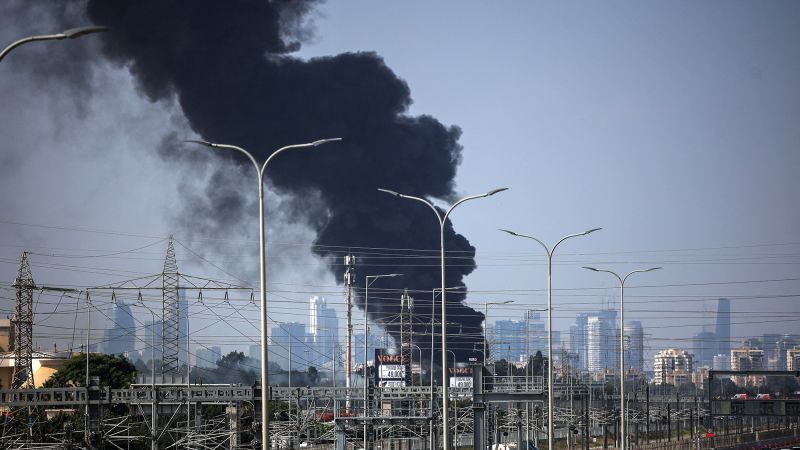The ongoing conflict between Israel and Iran has escalated significantly, with both countries exchanging strikes for the fifth consecutive day. The situation has led to a significant loss of life, with at least 224 people killed in Iran and 24 in Israel since the hostilities began. The international community, including the United States, is closely monitoring the situation.
US President Donald Trump has expressed his desire for a comprehensive resolution to the conflict, emphasizing the need for a "real end" rather than just a temporary ceasefire. Despite leaving the G7 summit early, Trump denied rumors that he was working on a ceasefire and hinted at a more significant development in progress. He has urged Iranians to evacuate Tehran, raising concerns about the escalating tensions.
In a rare public disagreement, President Trump contradicted his own director of national intelligence, Tulsi Gabbard, regarding Iran's nuclear capabilities. While Gabbard previously stated that Iran was not building nuclear weapons, Trump asserted that Iran was close to obtaining a nuclear weapon. This discrepancy highlights the complexity and differing assessments within the US administration regarding the Iranian nuclear program.
Israeli Prime Minister Benjamin Netanyahu has claimed that Israel's strikes have significantly hindered Iran's nuclear program. Israel has targeted key Iranian nuclear facilities and scientists, leading to both infrastructure damage and casualties. The conflict has also affected civilians, with reports of civilian casualties and significant destruction in both countries.
The impact of the conflict is being felt beyond Israel and Iran, with global leaders expressing deep concern over the situation. Chinese President Xi Jinping has emphasized the need to avoid military conflict and work towards peace and stability in the region. The international community, including countries like Qatar, India, and Pakistan, is actively involved in efforts to address the escalating crisis.
The conflict has resulted in significant disruption and destruction, including attacks on scientific research facilities, media organizations, and energy infrastructure. The humanitarian impact of the conflict is profound, as civilians in both countries face the brunt of the violence. The conflict's reverberations are being felt across the region, with implications for global energy security and stability.
As the situation continues to unfold, there are urgent calls for de-escalation and diplomatic solutions to prevent further loss of life and widespread destruction. The conflict between Israel and Iran underscores the complexity of regional dynamics and the challenges of navigating longstanding tensions and rivalries in the Middle East. The international community plays a crucial role in facilitating dialogue and finding peaceful resolutions to the conflict.

